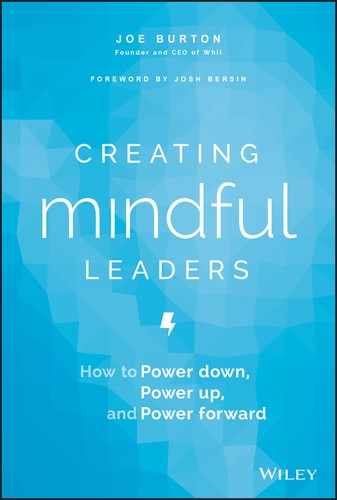
Chapter 6
You Versus Technology
Life is what happens between wifi signals.
—Random Millennial
Mobile devices are the best stress delivery mechanisms ever invented. And they get better twice a year. Faster, cheaper, able to stress people out in tall buildings. I can't wait to get the new iPhone XV. It mainlines stress directly into your prefrontal cortex.
According to Deloitte, Americans check their phones eight billion times a day, averaging out to about 46 times per day for each of us.1 That's up from 33 times per day in just one year. Millennials average 150 times per day.2 About 81% of U.S. adults have smartphones.3 That adds up to a lot of time where the average person isn't being present with their friends, co‐workers, or surroundings—let alone productive.
We're getting better at distracting ourselves. Addicted even. Researchers from the Network of Addictive Disorders consider cellphones to be one of the greatest addictions of the century. They highlight six types of behavior:
|
|
We've reached the point at which we're actually becoming uncomfortable with any mental downtime. One study even showed that the average adult male would rather experience electroshock therapy than be left alone with their thoughts.4 Yes—electroshock therapy. C'mon guys! What are you thinking?

Not only are we not giving our brains the time to recover, the excessive attention and uncontrolled dedication to our cellphones is harming our physical, mental, social, and work wellbeing. Here are two ways to reduce distractions to allow your brain to recover.
- Set three times during the day to use your device. That will disrupt the automaticity of constantly checking it.
- Check email for the final time before you get out of your car in the evening. Then turn it off and focus on your family.
Let your team know they can contact you until a certain time in the evening. After that, 99% of issues can wait until tomorrow. This also sets the tone for their own expectations.
